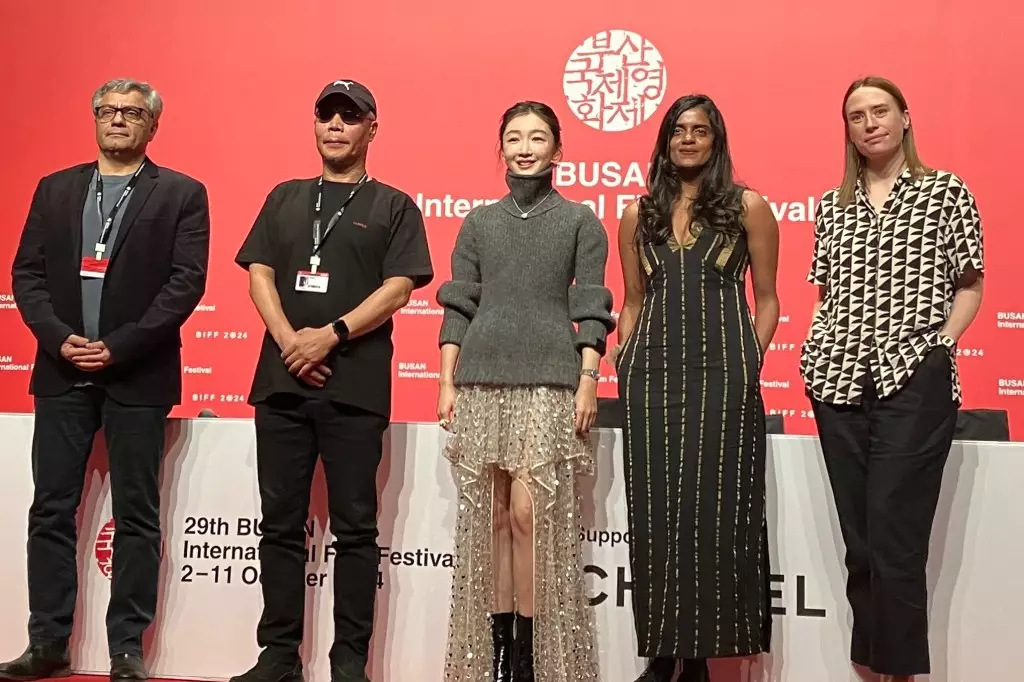At this year’s Busan International Film Festival, Mohammad Rasoulof, a prominent Iranian filmmaker, assumed the role of president of the New Currents jury. His film, *The Seed Of The Sacred Fig*, which encountered significant hurdles in its home country, was selected as Germany’s submission for the Best International Feature category at the Oscars. Rasoulof’s journey embodies the struggles faced by filmmakers under oppressive regimes, highlighting the potential for international recognition and support that transcends geopolitical boundaries. Living in exile after fleeing Iran, following an unjust eight-year prison sentence for his work on *The Seed Of The Sacred Fig*, he serves as a poignant reminder of the price many artists pay for creative expression.
The selection of Rasoulof’s film by Germany is not merely a formal acknowledgment of artistic merit; it represents hope for countless artists working under stringent censorship. The stark contrast between Iran’s government-influenced Oscars selection committee and Germany’s acceptance reflects broader questions regarding artistic freedom and the interplay between culture and politics.
Rasoulof’s comments at the New Currents jury press conference emphasized the importance of cultural exchange and understanding between nations. His assertion that *The Seed Of The Sacred Fig* has found new life in a different cultural context is significant for artists everywhere, particularly those navigating the challenging terrains of censorship. Filmmaking, as Rasoulof notes, has the power to connect individuals across diverse backgrounds, fostering a sense of solidarity among creators who experience similar struggles.
The German delegation’s willingness to embrace Rasoulof’s film and present it on an international platform suggests a growing recognition of the value of diverse voices in cinema. Its implications are far-reaching, inspiring other filmmakers constrained by their governments to continue pursuing their narratives and seeking avenues for their stories to be told.
The Role of Jury Members in Shaping the Future of Cinema
The jury overseeing the New Currents competition consists of influential figures from across Asia, including Korean director Lee Myung Se, Chinese actress Zhou Dongyu, Indian actress Kani Kusruti, and Vanja Kaludjercic from the International Film Festival of Rotterdam (IFFR). Each of these individuals brings a unique perspective shaped by their own experiences and the cinematic landscapes of their respective countries.
Lee Myung Se’s remarks on the current crisis in Korean cinema underline the struggles faced globally in the film industry today. As he seeks out projects that authentically reflect the art of filmmaking, there is a call for creative rejuvenation in post-pandemic cinema. His understanding of cinema’s evolving nature highlights the challenges and opportunities that lie ahead for filmmakers navigating both creative and commercial considerations.
Drawing on her experience, Zhou Dongyu expressed optimism regarding the cultural exchange between Korea and China, suggesting that a brighter future for collaboration between the two nations is on the horizon. This reflection on the evolving relationships between countries mirrors Rasoulof’s journey—each filmmaker’s story is interconnected through shared aspirations of freedom and expression.
Kani Kusruti’s commentary on the richness and diversity of contemporary Indian cinema adds another layer to the discussions surrounding international film. Despite the controversies surrounding the Oscars submission process in India, she celebrates the creative strides filmmakers are making across genres, from commercial to independent cinema. Her pride in the cinematic culture of her region, Kerala, accentuates the importance of local storytelling as a foundation for larger narratives.
Vanja Kaludjercic’s observations further illuminate the vibrant landscape of Indian filmmaking, noting the creative experimentation that has burgeoned in recent years. The recognition of such artistic diversity is crucial, for it not only showcases the unique cinematic languages emerging but also reinforces the necessity of platforms that provide emerging directors the chance to share their vision internationally.
The Busan International Film Festival’s New Currents competition stands as a testament to the transformative power of cinema in bridging divides and celebrating diverse expressions. As Rasoulof’s *The Seed Of The Sacred Fig* navigates recognition in exile, it embodies the resilience of artists confronting censorship and the broader implications of artistic collaboration in an increasingly interconnected world.
The festival not only serves as a launching pad for new voices but also emphasizes the need for solidarity among filmmakers globally. As they confront their unique struggles, the narratives emerging from regions under duress remind us of the universal longing for creative expression and understanding. In a world where artistic voices are often stifled, the celebration of their stories at venues like Busan holds greater significance, reaffirming that art will always find a way to cross borders.

